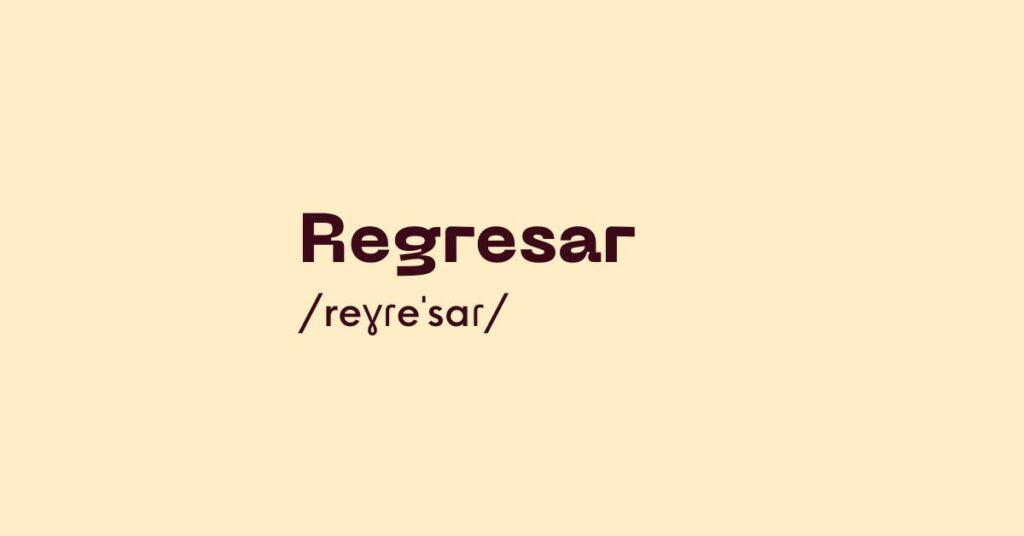Today’s Spanish word of the day is “regresar”.
It’s a verb meaning “to return” or “to come back”.
The word “regresar” comes from the Spanish word “regreso” (“return”), which in turn comes from Latin regressus, meaning “a return”. This is also the root of the English word “regress”. In English, “to regress” implies going backwards to a less desirable state, whereas in Spanish “regresar” doesn’t have a negative connotation – it just means “to return” or “to come back”.
Regresar vs. volver
Both “regresar” and “volver” mean “to return”, and they can often be used interchangeably. However, “regresar” is more common in Latin America, while in Spain you would normally hear “volver” instead. “Volver” is also used in a lot of idiomatic phrases where it can’t be substituted for “regresar”. For example, you could say “me vuelves loco” (“you drive me crazy”), but wouldn’t say “me regresas loco”.
Example sentences
Voy a regresar a casa después de la reunión.
I’m going to return home after the meeting.
Me gustaría regresar a ese lugar algún día.
I’d like to return to that place someday.
Aunque pensaba que regresaría a la ciudad después de unos días, terminé quedándome más tiempo del esperado.
Although I thought I would return to the city after a few days, I ended up staying longer than expected.
Avísame tan pronto como regreses.
Let me know as soon as you return.
Tras el largo viaje, estaba ansioso por regresar a mi casa.
After the long trip, I was eager to return home.

